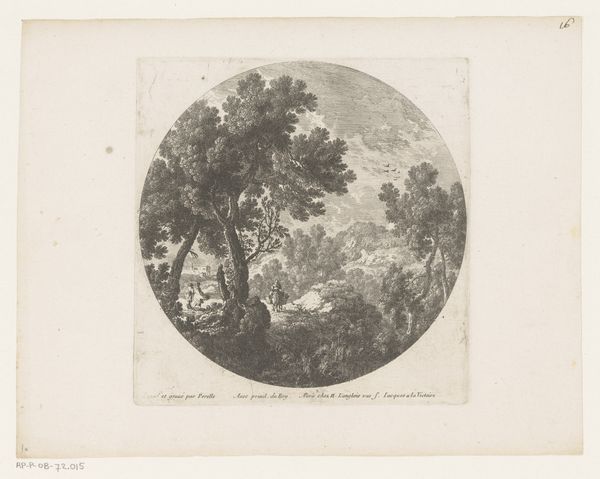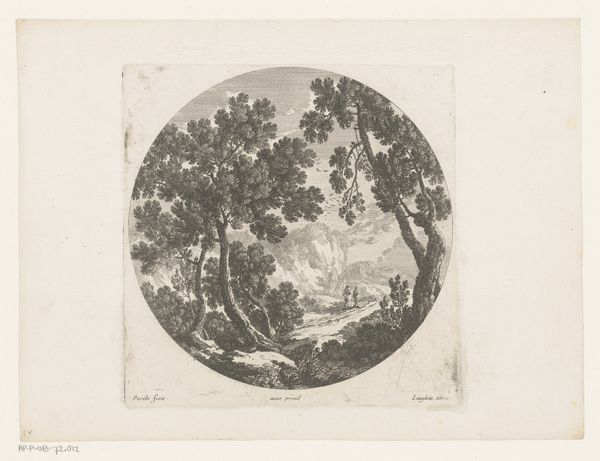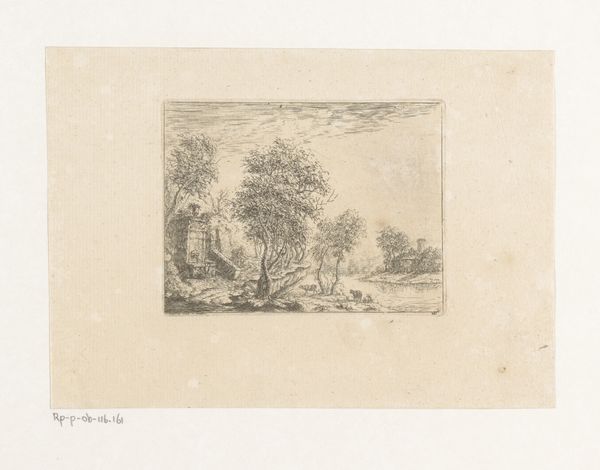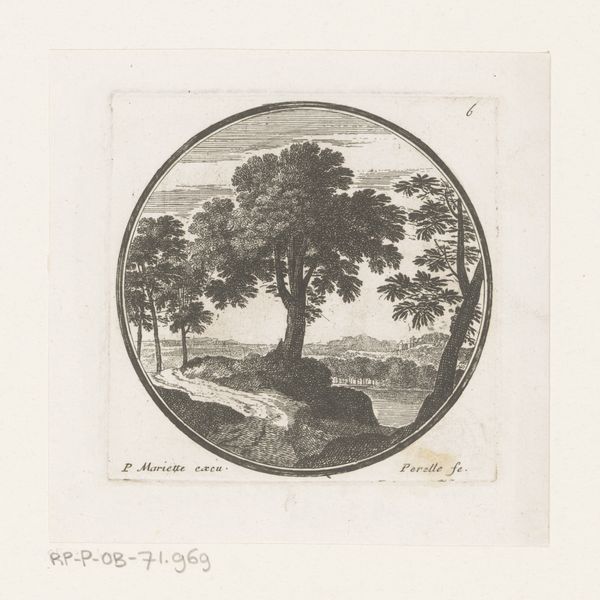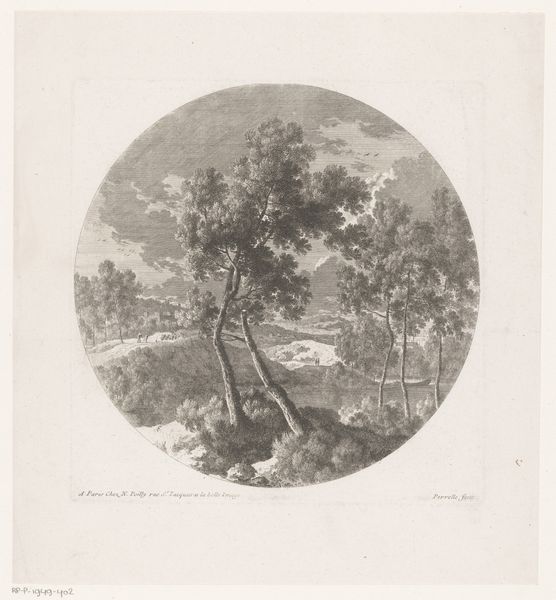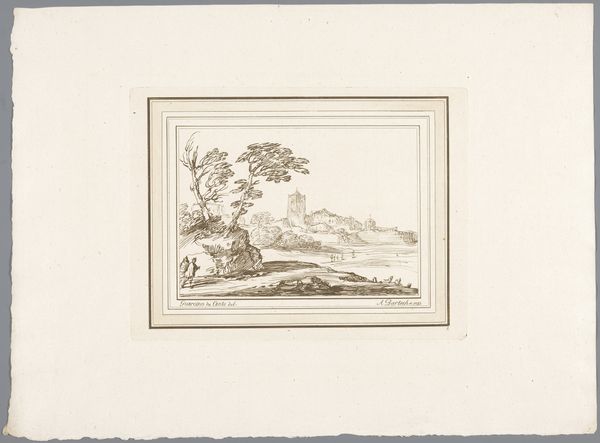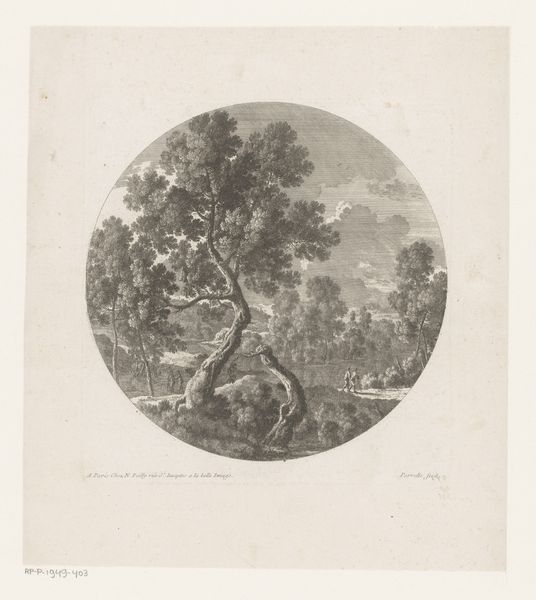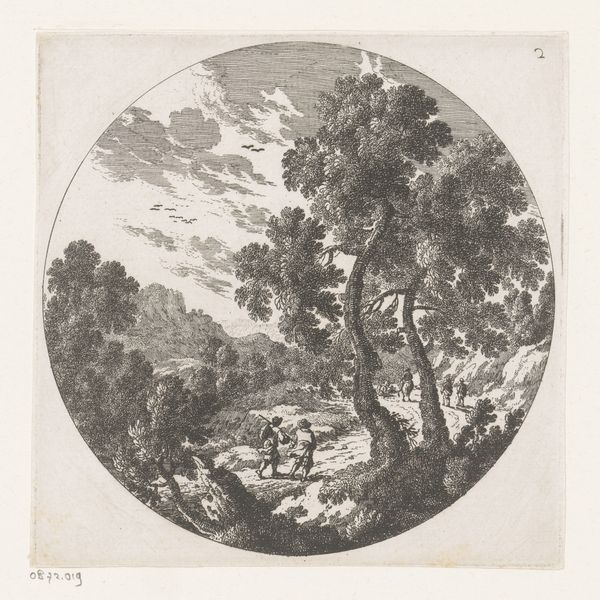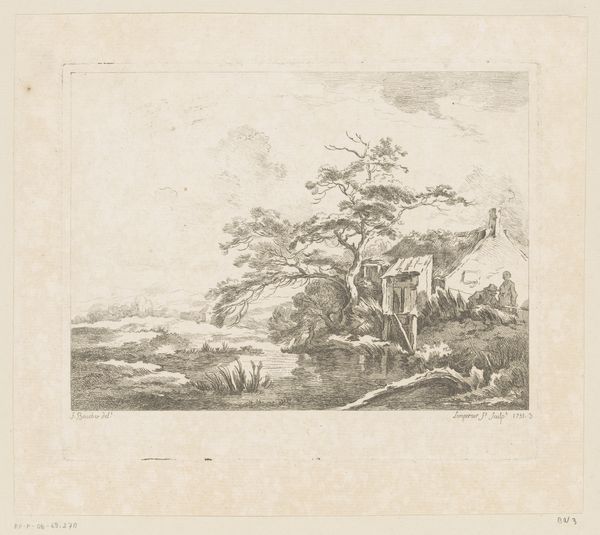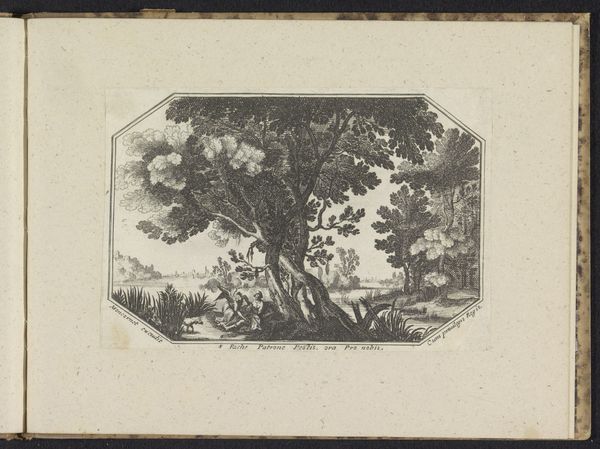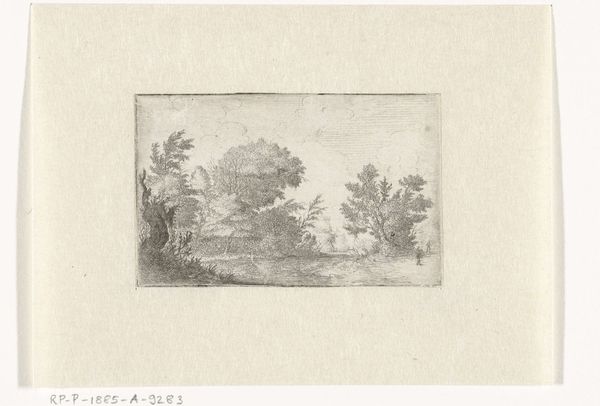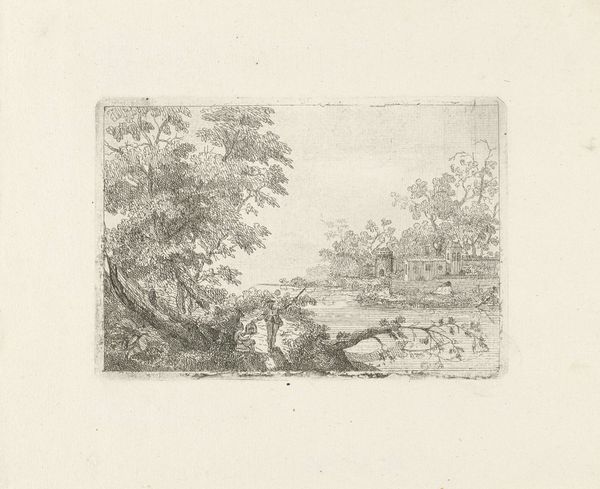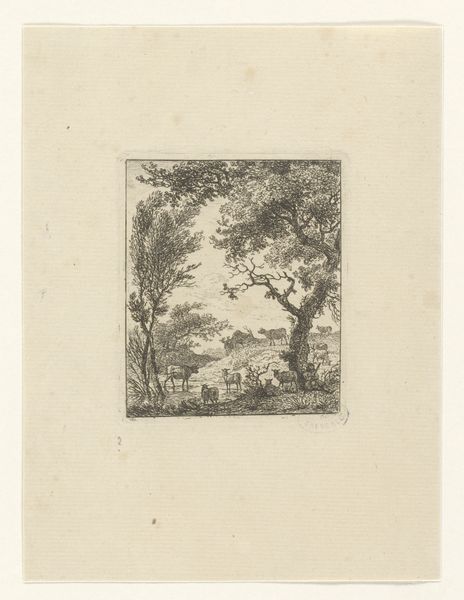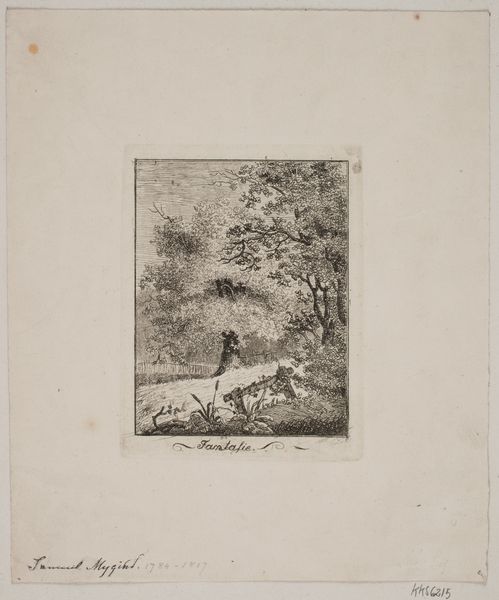
print, etching
# print
#
etching
#
landscape
#
geometric
Dimensions: height 86 mm, width 74 mm
Copyright: Rijks Museum: Open Domain
This landscape with farm and willow was created by Johannes Eusebius Voet van Campen, using etching techniques to depict a serene countryside. Here, nature itself becomes a powerful symbol. The willow, prominently placed, carries deep cultural significance. In various traditions, it symbolizes mourning, flexibility, and resilience. Think of the weeping willow found in graveyards, a common motif of sorrow. Yet, its branches also bend without breaking, embodying hope and renewal. Throughout history, trees in art have served as potent symbols of life, growth, and the interconnectedness of all things. From the Tree of Knowledge in religious contexts to the Romantic era's solitary oak representing steadfastness, we see this enduring motif. The presence of the willow resonates emotionally, inviting contemplation on nature’s cycles and our place within them. Note how the simple, almost melancholic scene evokes a subconscious pull, a reminder of nature's enduring power over the human spirit. The cyclical return of such imagery highlights our collective memory, subtly influencing our emotional response and understanding.
Comments
No comments
Be the first to comment and join the conversation on the ultimate creative platform.
